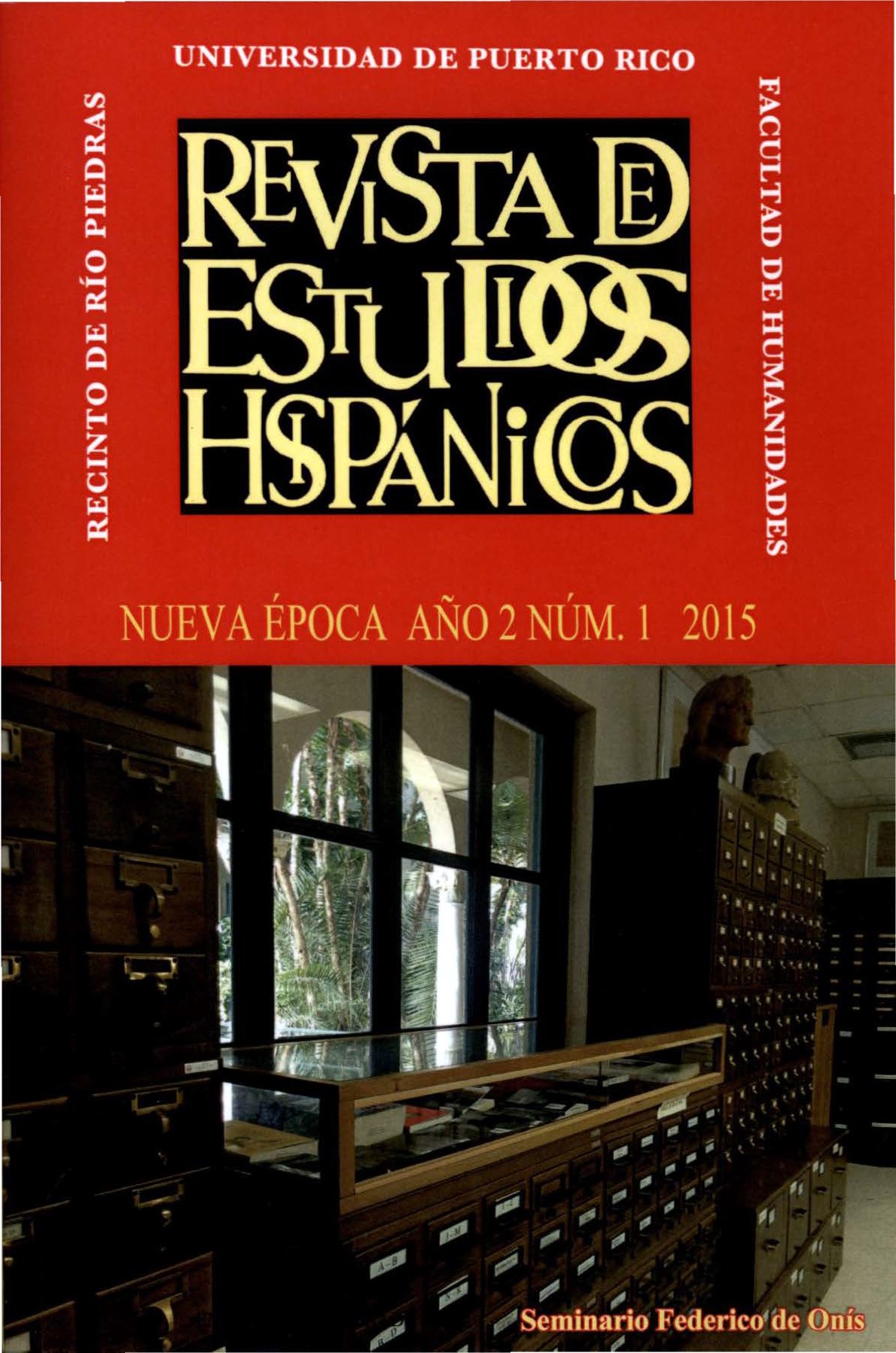Abstract
This article propases an intertextual analysis of Arturo Echavarría's self reflexive crime novel Como el aire de abril (1994) that takes in to consideration the writer's own analysis of Borges's "El jardín de senderos que se bifurcan" as a guideline. Thus, we see how Echavarría creates a writer protagonist incapable of overcoming in his own life the political circumstances of repression and censorship of Puerto Rico in the forties and fifties, or of confronting in the seventies the perpetrator of a crime he witnessed during the Korean War. Instead, he compensates for his deficiencies by recreating himself in a novel as a heroic double (in love and politics) of the Chilean poet Pablo Neruda, himself a double of Dante's Paolo Malatesta. Ironically, his writing the novel leads to his kidnapping and death by his captors, as well as to the kidnapping of a former student who investigates his disappearance.This work is licensed under a Creative Commons Attribution-NonCommercial 4.0 International License.
Downloads
Download data is not yet available.

